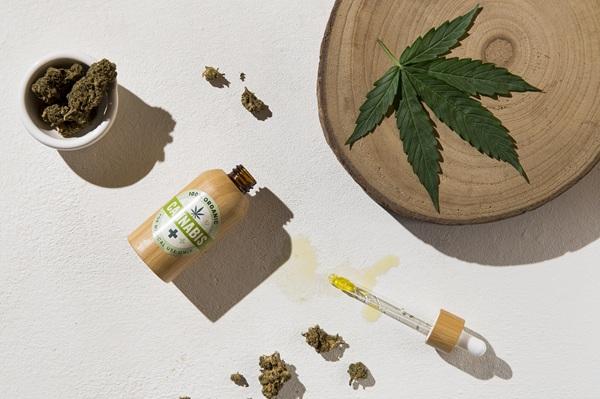Kentucky Medical Cannabis Program and PTSD

Post-Traumatic Stress Disorder (PTSD) refers to a mental disorder that may result from experiencing or witnessing tragic events such as accidents, natural disasters, violence, or warfare.
Victims often face symptoms such as:
-
Flashbacks
-
Nightmares
-
Hypervigilance
-
Sleep disturbances
-
Anxiety attacks
-
Emotional desensitization
-
Difficulty focusing
Traditional treatments include cognitive behavioral therapy (CBT), Eye Movement Desensitization and Reprocessing (EMDR), and medications such as antidepressants or anti-anxiety drugs.
However, these methods do not work for everyone and may cause side effects like sedation, dependency, or emotional blunting.
This has led some patients to explore alternative or complementary therapies, including medical marijuana—which has shown potential in relieving anxiety, improving sleep, reducing nightmares, and helping manage stress responses.
Kentucky recently recognized PTSD as a qualifying condition under its Medical Cannabis Program, opening new opportunities for patients seeking alternatives to conventional treatment.
The Legal Background of Kentucky’s Medical Cannabis Program
Legislative Development
-
Senate Bill 47 was signed into law on March 31, 2023, by Governor Andy Beshear.
-
It allows medical cannabis use for qualified patients with severe illnesses, including PTSD.
-
The program officially begins on January 1, 2025.
Restrictions
-
Smoking cannabis is prohibited.
-
Allowed forms include:
-
Vaporized flower
-
Concentrates
-
Restricted edibles
-
Tinctures
-
Topicals
-
Research and Oversight
-
The Kentucky Center for Cannabis Research at the University of Kentucky reviews qualifying conditions.
-
Licensing for cultivators, processors, dispensaries, and practitioners is handled by the Office of Medical Cannabis.
-
48 dispensary permits are distributed across 11 regions to ensure statewide access.
-
Over 150 doctors and nurses are authorized to certify patients.
How Medical Marijuana Can Help PTSD
1. Lowering Fear and Hyperarousal
Cannabinoids may provide sedative effects that reduce anxiety, intrusive thoughts, and heightened startle responses.
2. Improving Sleep and Reducing Nightmares
Cannabis may help PTSD patients fall asleep faster, sleep longer, and experience fewer nighttime flashbacks.
3. Managing Emotional Trauma Responses
Cannabinoid interaction with the brain’s endocannabinoid system may help patients process traumatic memories more calmly.
4. Fewer Conventional Side Effects
Some patients experience fewer issues such as sedation or emotional blunting compared to traditional medications.
5. Lower Long-Term Addiction Risk (When Monitored)
Under medical supervision, cannabis may be a safer option than opioids or high-dose benzodiazepines.
Note: While promising, more clinical trials are needed to confirm the safety and effectiveness of cannabis for PTSD. Kentucky’s program emphasizes evidence-based medicine.
How to Get a Kentucky Medical Marijuana Card
Step A – Verify Your Condition
Check if your diagnosis qualifies. PTSD is on the official list alongside chronic pain, epilepsy, multiple sclerosis, and cancer.
Step B – Find a Certified Practitioner
Only physicians and advanced practice nurses registered with the Kentucky Medical Cannabis Practitioner Registry can certify patients.
Step C – Medical Evaluation
Your practitioner will assess your eligibility and issue a certification if you qualify.
Step D – Apply for the Card
Register on the Kentucky Medical Marijuana Portal and provide:
-
Proof of residency
-
Practitioner certification
-
Valid photo ID
-
Recent photograph
-
Application fee
Your card will be issued electronically or by mail.
Step E – Purchase from Licensed Dispensaries
Once you have your card, you may buy legal non-smokable cannabis products from licensed dispensaries.
Approved forms include:
-
Vaporized flower
-
THC-regulated edibles
-
Tinctures
-
Topicals
Step F – Stay Updated and Renew
Cards typically require annual renewal. Stay informed through official updates, educational webinars, and your healthcare provider.
Resources in Kentucky
Medical Marijuana Doctors
Kentucky maintains an online directory of certified medical cannabis practitioners.
Dispensaries
The state has allocated 48 dispensary licenses across both urban centers like Louisville and Lexington and rural regions.
Benefits and Safety of the Program
Benefits
-
Relief for treatment-resistant PTSD symptoms
-
Access to safe, tested cannabis products
-
An alternative to opioids for pain and symptom management
Safety Features
-
No smoking allowed—only safer alternatives
-
Strict THC content and contaminant testing
-
Prescriptions only from certified practitioners
-
Gradual, controlled rollout
The Future of Medical Cannabis in Kentucky
Kentucky’s approach is cautious but progressive. Continued research may expand the list of qualifying conditions. The ultimate goal is:
-
Equitable access for patients
-
Public safety
-
Ongoing education for patients and healthcare providers
This program represents a new hope for PTSD patients seeking regulated, medically supervised cannabis treatment.
- Art
- Causes
- Crafts
- Dance
- Drinks
- Film
- Fitness
- Food
- Games
- Gardening
- Health
- Home
- Literature
- Music
- Networking
- Other
- Party
- Religion
- Shopping
- Sports
- Theater
- Wellness


